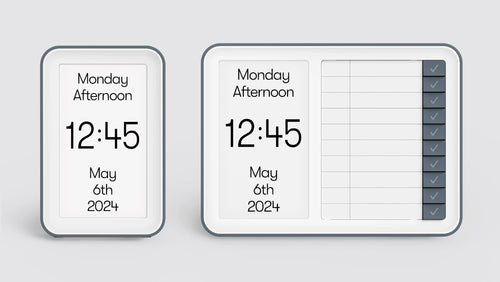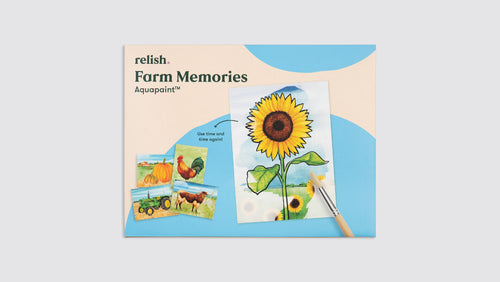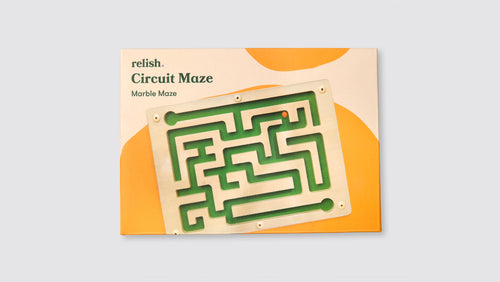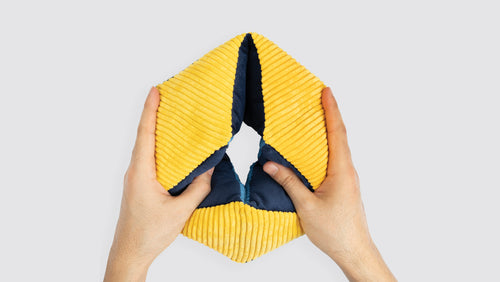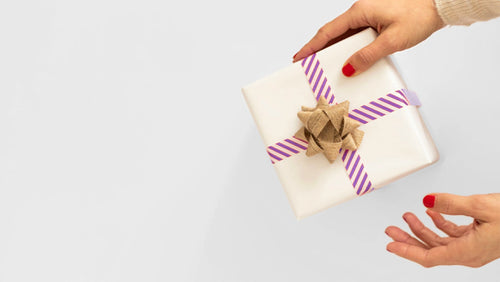Living with dementia can present unique challenges, but with the right support and tools, individuals can continue to live independently and maintain a wonderful quality of life that allows them to remain and stick to a routine.
In this article, we will explore a range of dementia aids and gadgets designed to assist people living with dementia in their homes. Among these aids, we are excited to highlight our innovative Day Hub dementia clock with Task Alerts, which helps people with dementia and their caregivers make sure everything goes to plan.
What Challenges Can People With Dementia Face Living At Home?
Living at home can have its perks, including routine, stability, and a sense of normalcy, especially if it is a home the person living with dementia has been in for many years. Being in your own home means you can personalise the house to your specific needs and wants, too, particularly if you have the benefit of being a homeowner.
However, living at home does come with some challenges. People living with dementia may encounter several challenges while residing at home. These challenges can include:
- Wandering or getting lost: This behaviour may manifest as getting lost while running errands or even within their own home. As dementia progresses, wandering can become more frequent and may involve wandering unsupervised in the neighbourhood, posing significant safety concerns.
- Anxiety or agitation: Mood disruptions, such as agitation and anxiety, are common throughout the various stages of dementia. These disruptions can significantly impact an individual's ability to engage in daily tasks, including personal hygiene, meal preparation and social interactions.
- Completing daily tasks: Everyday activities such as cooking, cleaning, showering and organising may become more challenging.
- Personal care: Maintaining personal hygiene, bathing and using the toilet can become confusing or overwhelming.
- Mobility and safety: Dementia can affect spatial awareness and balance, increasing the risk of falls and accidents.
- Medication management: Remembering to take medications at the correct time and dosage can be problematic.
- Poor nutrition: Nutrition, cooking, and remembering to eat can become increasingly challenging, leading to potential weight loss, weight gain, or other negative health consequences. Poor nutrition can compromise immune response and impair healing processes.
- Isolation and loneliness: Seniors experiencing the early stages of dementia may feel embarrassed or self-conscious. As dementia progresses, they may stop initiating social interactions, leading to isolation, which can cause loneliness, depression, and even accelerate cognitive decline.
Explore our wellbeing tips on how to stay independent when living with dementia.
How Can Dementia Aids for the Home Help People With Dementia?
Enter dementia aids. Dementia home aids play a crucial role in supporting individuals with dementia by addressing their specific needs and offering safety and security. These aids can help by:
- Enhancing memory: Memory aids like clocks, calendars and reminder systems provide visual cues to help individuals remember important events and tasks.
- Simplifying daily tasks: Specialised tools and gadgets can make daily activities more manageable, such as easy-to-grip utensils or adapted remote controls.
- Promoting independence: Assistive devices like grab rails and raised toilet seats can enhance safety and mobility, allowing individuals to remain independent.
- Ensuring medication adherence: Automatic pill dispensers with built-in reminders help individuals take medications at the right time, reducing the risk of missed doses.
- Providing reassurance: Dementia aids, such as door sensors and alert systems, offer peace of mind to caregivers, ensuring their loved ones' safety even when they're alone at home.
Dementia Home Aids To Help Your Loved One Live Independently
There is a wide range of home aids for dementia that are designed to assist with memory, completing daily tasks, personal care, mobility and eating and drinking.
Day Hub
The Day Hub, developed by us here at Relish, is an exceptional dementia clock that goes beyond displaying the time and date. Our innovative device also indicates whether it is morning, afternoon, evening, or night, helping individuals orient themselves and maintain a sense of time.
Moreover, the Day Hub can be scheduled with reminders for essential activities like meals, showers, medication, and pet care. By incorporating the Day Hub into daily routines, individuals with dementia can experience greater independence, and caregivers can have peace of mind knowing their loved ones are supported throughout the day with routine and reminders.
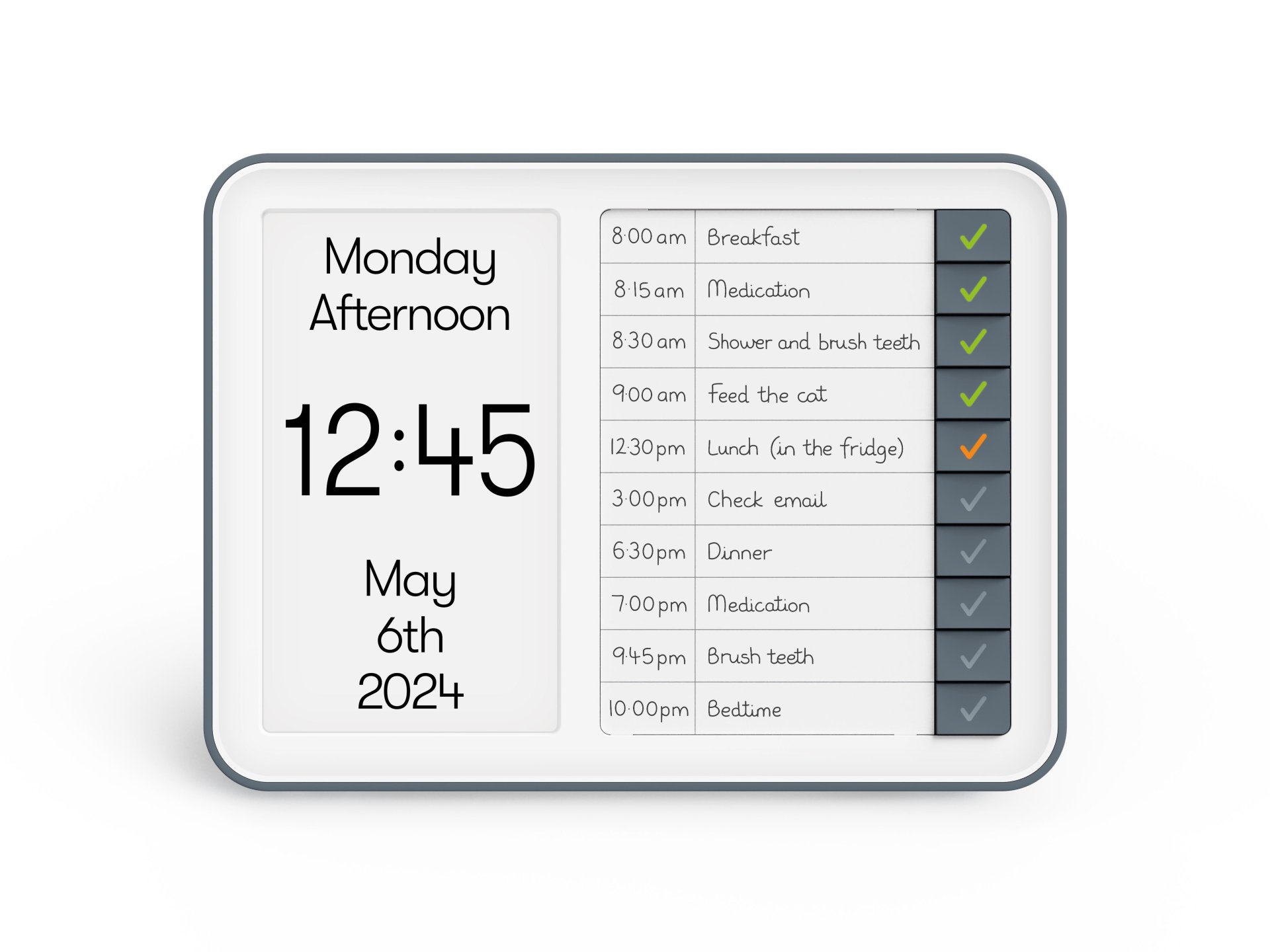
You can even set up multiple hubs around your home using Day Connect, a device that allows you to enjoy the benefits of the Day Hub in two or more locations around the home.
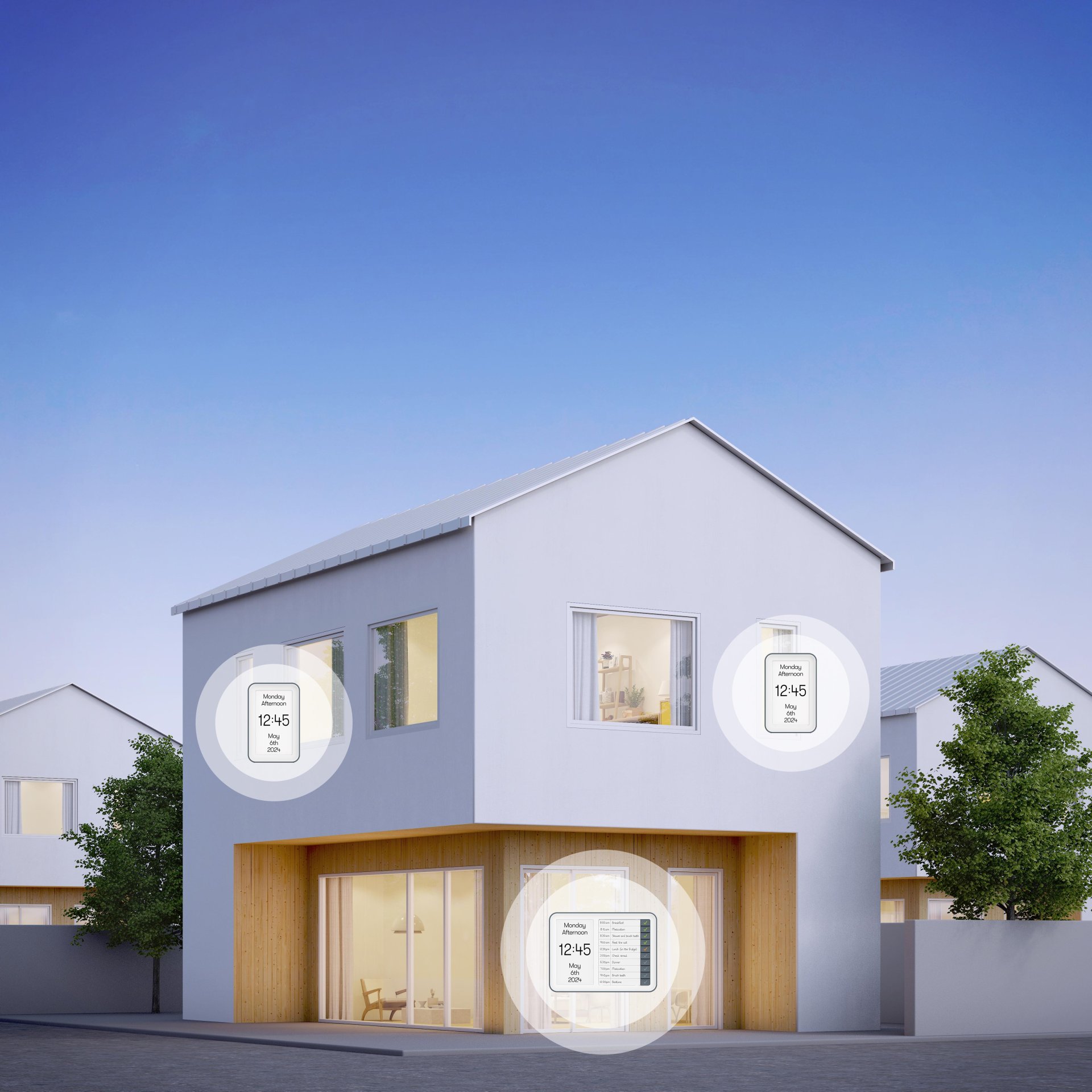
Memory aids
Adding sweet digital picture frames that display family and friends can be very helpful for prompting happy memories. Personal memory books can assist in memory recall.
- Signage for different areas of the home
- Electronic Medication Reminder
- Elderly Daily Planner
- Oven Timer
Daily living aids
Adaptive utensils, easy-to-read labels, and task organisers can help individuals with dementia complete everyday tasks with greater ease.
- Silicone Adult Bib
- Super Grip Bendable Utensils Set
- Cups and Plates for Dementia
- Corded Telephone with Photo Buttons
- Rechargeable Hearing Aids
- Relish Dementia Radio
Learn here how dementia-friendly radios can boost independence.
Personal care aids
Raised toilet seats, grab bars in the bathroom, and non-slip mats ensure safety and support while maintaining personal hygiene.
- Non-Slip Bath Step with Handle
- Adjustable Bathroom Grab Rail
- Raised Toilet Seat with Handles
- Getting Dressed Memory Aid
- Weighted Wipe Clean Lap Pad
- Wordsearch for Dementia
Mobility aids
Walking aids, such as rollators or canes, and home modifications, remove hazards, promote mobility and reduce the risk of falling.
- Chair Alarm Sensor Pad
- Wheelchair Transfer Board
- Motion Sensor Night Light
- Modular Ramp System
- Tranquil GPS Watch
How To Adapt The Home To Make It Dementia-Friendly
In addition to utilising dementia aids in the home, making the home environment dementia-friendly can greatly contribute to an individual's wellbeing and independence. Consider implementing the following changes
Ensure bright and good lighting throughout the house
Adequate lighting is essential to reduce shadows and enhance visibility, minimising confusion and disorientation for individuals with dementia.
- Replace dim or flickering lights with bright, consistent lighting.
- Consider using nightlights in hallways and bathrooms to provide guidance during nighttime.
Use contrasting colours and clear signage
- Use contrasting colours for walls, furniture, and decor to improve visibility and help individuals with dementia differentiate between different areas.
- Clear signage with large, easy-to-read fonts can be placed on doors, cabinets and drawers to assist with navigation and finding items.
Minimise clutter and maintain a clean and organised living space
Clutter can be overwhelming and confusing for individuals living with dementia.
- Keep living spaces tidy and organised, removing unnecessary items or decorations that may cause distraction or confusion.
- Avoid using patterned carpets or busy wallpaper, as they can be visually confusing.
- Having a cleaner come in once a week can be incredibly supportive and take away from a caregiver's many responsibilities.
Install handrails and grab bars
- Install handrails along staircases and in bathrooms to provide support and stability for individuals with mobility challenges.
- Grab bars in the bathroom can assist with getting in and out of the shower or on and off the toilet safely, reducing any risk of falls.
Simplify access to frequently used items
- Arrange frequently used items such as keys, wallets, and glasses in a designated and easily accessible location, by the front door or common areas that are used.
- Adding visible containers and labels to help individuals with dementia locate and identify items independently.
Secure front doors with discreet locks or alarms
Wandering is a common concern for individuals with dementia.
- Installing discreet locks or alarms on front doors can help to prevent unauthorised exits while still allowing easy access for caregivers and families.
- Consider using door sensors or alarms that alert caregivers if the door is opened unexpectedly.
Read our safety tips for people living at home with dementia.
Enjoy a fulfilling life at home with dementia home aids
At Relish, we believe that individuals living with dementia can maintain independence and enjoy a fulfilling life at home. By utilising home aids for dementia and making necessary adaptations, caregivers can provide support while empowering their loved ones. The Day Hub, our innovative dementia reminder clock, along with a range of other aids, can make a significant difference in promoting independence and enhancing wellbeing.
Explore our website to learn more about Relish and discover how the Day Hub can positively impact the lives of individuals with dementia.. Together, we can create a dementia-friendly environment that fosters independence and enriches daily living.
